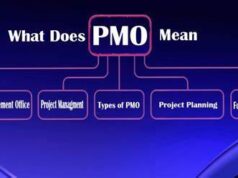When it comes to postgraduate degrees in business, the qualification that’s on everyone’s lips is the MBA. It’s arguably the most prestigious and respected course available and if you are willing to invest the necessary time, money and effort into one, then it will set you up very well for the future. So if you’ve been thinking about giving your current career a boost, moving into a new corporate field, or starting up your own business, an MBA could be a fantastic choice for you. Here’s a quick overview of what you need to know about the program to help you decide.
What actually is an MBA?
The MBA is an internationally-recognized, general postgraduate qualification in business. It stands for Master of Business Administration and focuses on a broad range of professional topics to give you the necessary skills and knowledge to take your career to the next level. Slightly differently to most graduate programs, the MBA is aimed at those who already have at least three years of corporate work experience. The average age of an MBA student is around 28 and many are in their 30s and 40s, meaning this is a great course for older students.
There are a few different types of MBA you can choose from. In addition to the standard MBA, there’s an Executive MBA program which is aimed at workers who are already in executive or managerial roles and have a substantial amount of work experience. This type of course is often offered as a weekend or evening program in order to allow students to study whilst still working full time.
Other options include the Global MBA, which has more of an international focus, and specialist MBA programs that concentrate on a particular aspect of business such as marketing, finance or entrepreneurship. This means the MBA can often be tailored to suit your specific interests and career aspirations.
What sort of topics does an MBA cover?
The MBA is a general business program, meaning that it covers a wide variety of topics all across the business sphere (although if you take one of the specialist MBAs, your focus might be slightly narrower). Each specific course will have a unique curriculum based on the specialties of its faculty members and will usually consist of a set series of compulsory modules plus a range of optional modules you can choose from as electives.
Here’s a selection of possible modules you can expect to see on offer:
- Crafting Organizational Strategy
- Creating and Delivering Customer Value
- Measuring and Enhancing Financial Performance
- Leading Complex Organizations
- The Global Economic Environment
- Digital Transformation of Marketing, Media and Advertising
- Financial Crises and Risk Management
- Global Sustainable Business
- Business Economics
- Data Analytics
- Marketing Science and Strategy
- Critical Leadership Decisions
- Managerial Finance
- Organizational Behavior
- Perspectives in Business Ethics
- Macroeconomics
- Innovation and Entrepreneurship
- Strategic Problem Solving
- Supply Chain Management
- Trust in the Digital Age
- FinTech
What is studying for an MBA like?
Studying for an MBA is a rigorous and challenging experience, but also an extremely rewarding one. There are options to do the course in anything from one year as a full time student, to up to six years as a part time student. In addition to this, you can choose to either attend a course on a college campus or to study online. For example you can do a fully online MBA in the UK from anywhere in the world or enrol on a hybrid course where you do most of your coursework online but still attend in person a few times.
When it comes to the actual study experience, you can expect to complete a lot of group projects and study workshops. These are a great way to improve your teamwork, negotiating, presentation and interpersonal skills. This will be alongside more traditional classes and seminars, with lots of reading and written work to complete too.
One of the most exciting parts about studying for an MBA is the chance to work on consultancy projects with real world companies. This is a fantastic way to get valuable experience of solving genuine business issues and put what you have been learning into practice. It’s also good for making some potentially useful contacts for the future.
You might additionally have the opportunity to complete an internship over the summer – which is perfect for making the transition from student to employee – or study abroad if that is something that interests you. There may even be support available for you to pitch your own business ideas to investors.
What are the benefits of getting an MBA?
Due to the high cost of an MBA degree, you may understandably be wondering what the benefits of taking one are, and whether they’re worth it. The good news is that completing an MBA can be a real game changer for your career. You’ll greatly increase your business acumen and develop a wide range of useful skills. These include leadership, communication, confidence, problem solving, decision making, time management and organization – all of which will be extremely useful whatever job role you go on to fulfil.
In addition, MBA graduates can expect to enjoy a substantially higher salary than graduates of other postgraduate courses. You’ll benefit from greater employability, job security and financial stability, plus increase your chances of promotion and open doors to a huge range of opportunities. An MBA is a truly international qualification, meaning it may help you if you’re hoping to work abroad one day too.
If you would prefer to work for yourself, an MBA can also help you to develop all the skills and business acumen you’ll need. There are specific modules you can take on entrepreneurship, plus you’ll have access to knowledgeable faculty members to give you advice. In fact, this kind of networking opportunity is arguably the biggest benefit of doing an MBA. You’ll be surrounded by like-minded, driven professionals from a variety of backgrounds, plus have the chance to attend plenty of networking events and mingle with potential future employers or business partners. Just be sure to make the most of it!

















